In an extensive national survey, most U.S. evangelicals state that worshiping alone or with one’s family is a “valid replacement” for regular church attendance. Reflecting an increase of 15 points from a similar 2020 survey, it’s the first time a majority of evangelical believers affirm this view.
That’s according to the “State of American Theology” study, a biennial survey of a nationally representative sample, which was published Monday. It was conducted by Lifeway Research, a Nashville-based research firm affiliated with the Southern Baptist Convention, and sponsored by Ligonier Ministries, a teaching ministry grounded in Reformed theology.
The survey reports that two-thirds of all Americans (66%) believe worshiping apart from a local congregation is as “valid” as worshiping with one. When controlling for respondents with “evangelical beliefs,” most evangelicals (54%) affirm the statement.
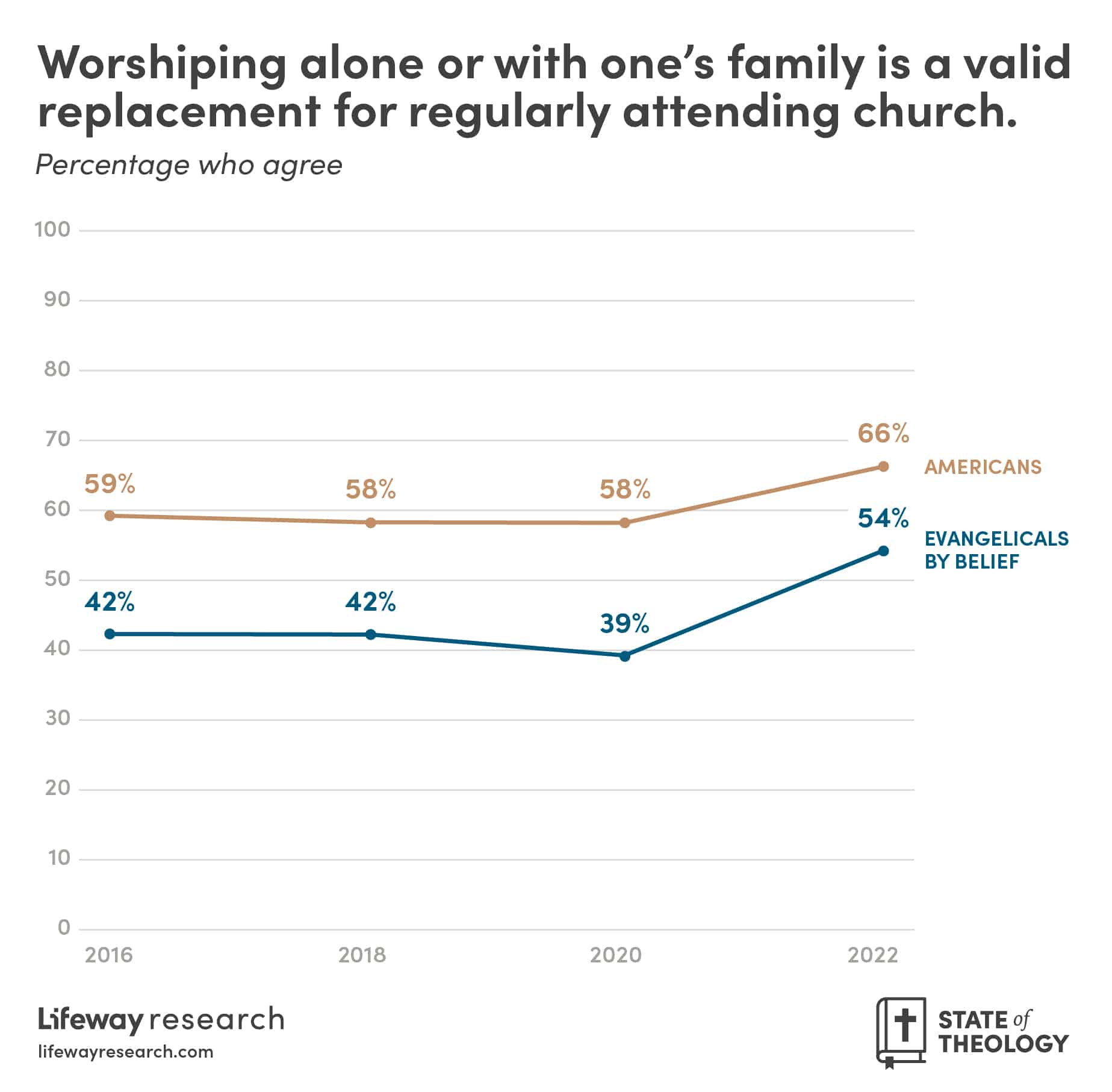
“Religious identity, beliefs and behavior are interrelated,” said Scott McConnell, executive director of Lifeway Research. “When in-person church attendance behaviors were interrupted and habits were broken, it affected some Americans’ beliefs about the need to gather with other believers to worship.”
Last fall, Pew Research reported that the vast majority of houses of worship had reopened to the public without restrictions. Evangelicals were notably the segment with worship services that were fully open, and most opposed to COVID-related restrictions continuing to be imposed.
Your tax-deductible gift helps our journalists report the truth and hold Christian leaders and organizations accountable. Give a gift of $30 or more to The Roys Report this month, and you will receive a copy of “Hurt and Healed by the Church” by Ryan George. To donate, click here.
For this recent study, Lifeway Research surveyed a statistically significant group of 3,011 Americans. The research firm’s senior writer Aaron Earls told The Roys Report that 711 of those respondents met the qualifications as holding evangelical beliefs.
To be classified as evangelicals, respondents had to affirm the “Bebbington quadrilateral,” a set of four beliefs defined by theologian David Bebbington. Specifically, they had to “strongly agree” that:
- The Bible is the highest authority for what I believe.
- It is very important for me personally to encourage non-Christians to trust Jesus Christ as their Savior.
- Jesus Christ’s death on the cross is the only sacrifice that could remove the penalty of my sin.
- Only those who trust in Jesus Christ alone as their Savior receive God’s free gift of eternal salvation.
Confusion about God, including among evangelicals
The survey also found that most Americans are far removed in understanding the nature of God as stated in historic Christian doctrines.
Specifically, 60% of U.S. adults state that religious belief is a matter of personal opinion, rather than objective truth. In addition, 67% of Americans say God accepts the worship of all religions, including Christianity, Judaism, and Islam. And 53% of Americans say Jesus was a great teacher but not God.
“Many Americans think about God as if He had only revealed himself in a vague, nondescript way,” said McConnell. “They seem to fill in the gaps with whatever they want to believe. This creates sharp contrasts between what Americans believe about God and how He revealed himself in great detail in the Bible.”
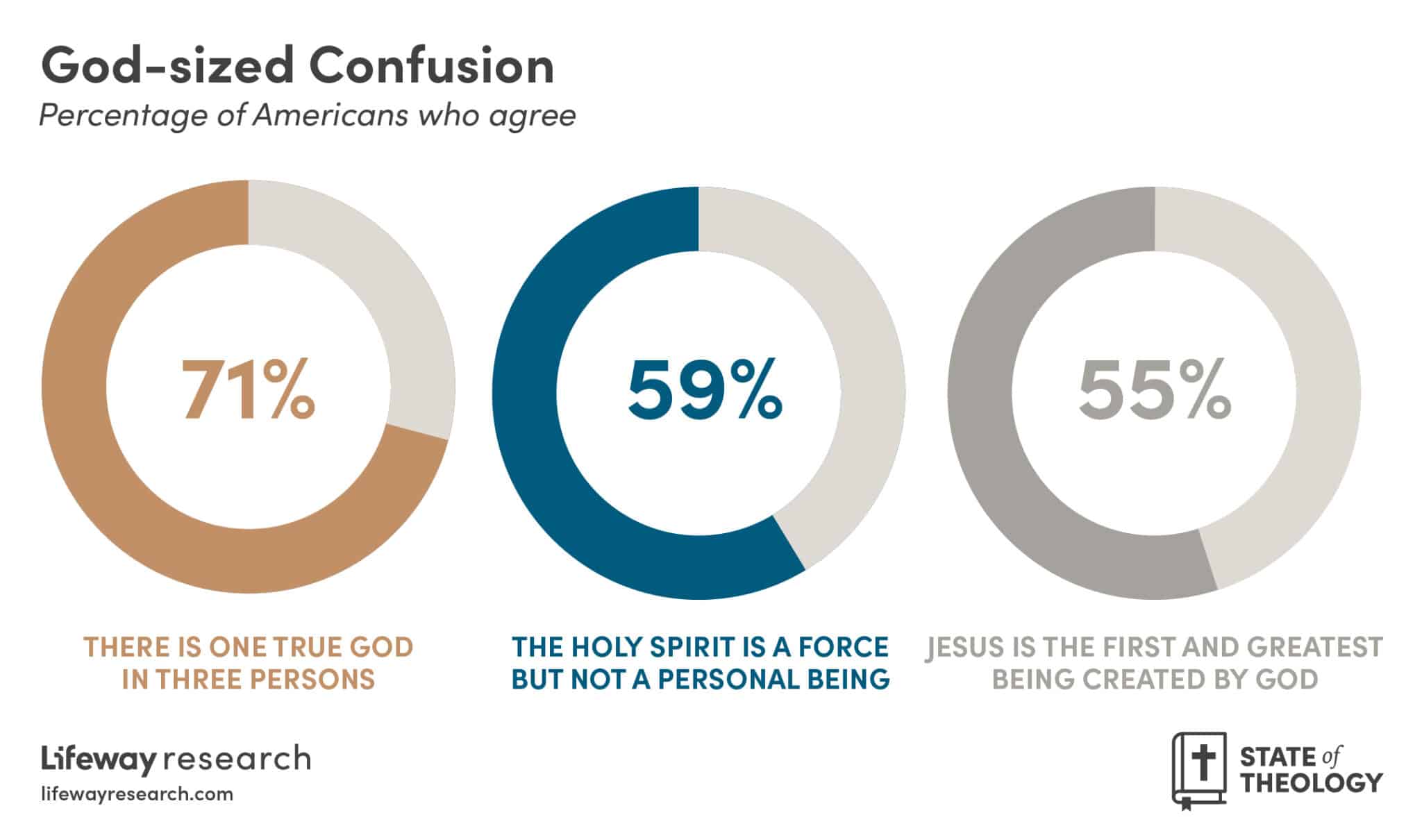
However, the confusion about doctrine seemed to be mirrored, or even exacerbated, among U.S. evangelicals.
In the most prominent example: 55% of Americans and 73% of evangelicals believe Jesus is the first and greatest created being. (This belief runs counter to historic Christian doctrine.)
The survey also found 59% of Americans overall say the Holy Spirit is a force, not a personal being—a percentage that is mirrored among evangelical respondents. (Historic Christian doctrine also refutes this belief.)
Daniel Darling, director of The Land Center for Cultural Engagement at Southwestern Baptist Theological Seminary in Ft. Worth, Texas, viewed these latter survey findings as a call-to-action for evangelical ministers.
He tweeted: “Hot take: pastors and church leaders assume a theological literacy that may not be there. So this is why regular teaching of core doctrines matters.”
Hot take: pastors and church leaders assume a theological literacy that may not be there. So this is why regular teaching of core doctrines matters. https://t.co/yrcqSwbSWX
— Daniel Darling (@dandarling) September 19, 2022
 Freelance journalist Josh Shepherd writes on faith, culture, and public policy for several media outlets. He and his wife live in the Washington, D.C. area with their two children.
Freelance journalist Josh Shepherd writes on faith, culture, and public policy for several media outlets. He and his wife live in the Washington, D.C. area with their two children.




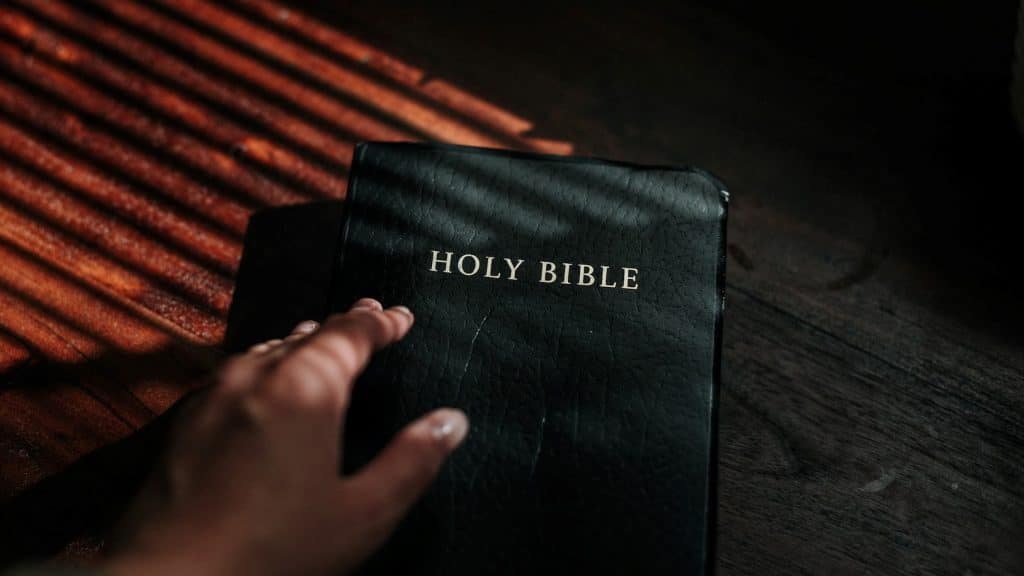


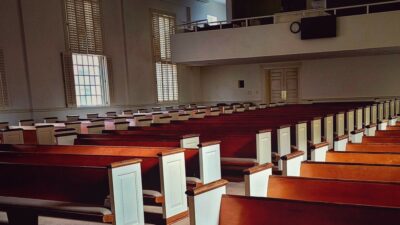




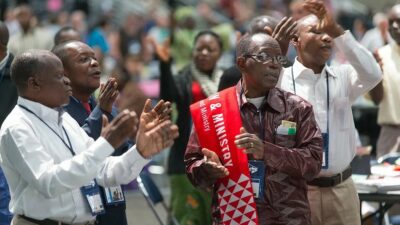
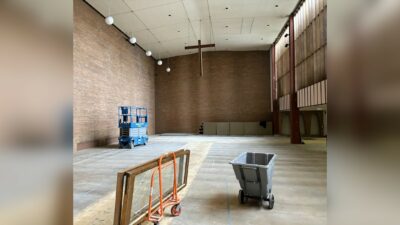






6 Responses
Interesting. I think part of the problem re: biblical knowledge is that far too many sermons are heavy on application and light on theology. I suppose because pastors aren’t equipped to give sermons on theology–harder work–and secondly, application generally keeps the pastor away from controversy that can pop up when the pastor takes a theological stand. My experience is that people want biblical knowledge…not just history or geography or biographies or application…but actually what the bible means, not just what it says.
Consider the flip side:
“If I have the gift of prophecy and can fathom all mysteries and all knowledge, and if I have a faith that can move mountains, but do not have love, I am nothing.”
Not everyone who walked away is biblically illiterate and not everyone who stayed is walking with the Lord.
A great quote there Mark. I would say please forget what men say that they believe and, instead, watch what they actually do. You do not have to be a Christian in order to repeat, word for word, someone else’s sermon. But actually living out your life as a disciple in all of your actions is something very different.
What I would love to know is if people make a distinction between worship-as-gathering or worship-as-singing-a-P&W-set when they answer a question like this… or asked this way; How many people think that all they need is to sing/sway/get hyped to some ear-tickling music alone or even with others and they believe that’s all they need? I get the feeling sometimes in my very folksy evangelical bubble that some people almost believe that, given what they say sometimes… I thought at first the article’s angle might be along those lines. I personally think, along with some other things, that the current in-the-pews/masses definition of “worship” has malformed us…
I like the article that Julie picked. Because it had a lot to do with other things besides church attendance, such as doctrine actually. The article pulled out some important things to look for in a church. I would also add.—-
“What should I be looking for in a church?”
https://www.gotquestions.org/looking-church.html
If you have an over-abundance of local churches that meet the above qualifications? Look at this short comment; it will certainly cut the number down ???? ☛
“How To Check Your Church for Financial Transparency” ????
https://www.checkmychurch.org/post/how-to-check-your-church-s-financial-transparency
I think this depends on how one defines worship. I see some posters focusing on the “praise and worship” aspect of church service, which often involves singing.
But if one defines worship as an “entire service” (e.g., hosting a house church with immediate family) or as a lifestyle (e.g., living a life that worships God in all we say and do), I can see how it could lead to questioning the need to go to a “formal” church service, especially with all the inner-church conflict and corruption going on from the pulpit.
I do believe gathering of disciples is important, yet I don’t know if that has to be at a formal church service.